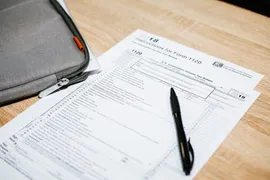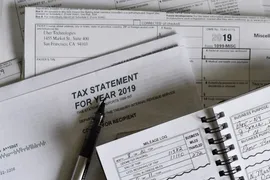Tax season can be stressful, especially if you’re worried about paying more than you should. The good news is that many taxpayers overlook deductions that could significantly reduce their tax bills. Whether you’re an individual or a small business owner, here are ten tax deductions you might be missing and how to take advantage of them to maximize your savings.
1. State Sales Tax Deduction
Did you know you can choose between deducting state income taxes or state sales taxes? If you live in a state with no income tax, the sales tax deduction can be especially beneficial. Keep receipts of large purchases, like vehicles or home renovations, to add to your deduction.
Tip: Use the IRS Sales Tax Deduction Calculator to estimate your deduction if you don’t have all your receipts.
2. Charitable Contributions
Most people know they can deduct charitable donations, but did you know you can also deduct the expenses related to volunteering? Out-of-pocket costs like mileage, supplies, and even uniforms can be deducted if they’re directly tied to charitable work.
Examples of Deductible Expenses:
- Mileage driven while volunteering (use the IRS standard mileage rate for charitable activities).
- Cost of materials or supplies donated to a charity.
3. Student Loan Interest Deduction
If you’re repaying student loans, you might qualify to deduct up to $2,500 in interest paid. This deduction is available even if you don’t itemize, making it one of the most accessible ways to lower your tax bill.
Eligibility Criteria:
- The loan must be in your name or your spouse’s name.
- Your income must be below the IRS limit for this deduction.
4. Medical Expenses
Medical expenses can be deducted if they exceed 7.5% of your adjusted gross income (AGI). This includes out-of-pocket costs like prescription medications, medical devices, and even travel expenses for medical care.
Remember: Keep detailed records and receipts of all your medical expenses throughout the year.
5. Home Office Deduction
If you’re self-employed and work from home, you may qualify for the home office deduction. This deduction allows you to deduct a portion of your mortgage, rent, utilities, and other home-related expenses.
Requirements:
- The space must be used exclusively and regularly for your business.
- This deduction is not available to W-2 employees who work from home.
6. Job Search Expenses
Looking for a new job? Job search expenses like resume services, travel, and placement agency fees can be deductible if you’re searching in your current occupation. This deduction applies whether or not you land the job.
Important Note:
- This deduction was suspended from 2018 to 2025 under the Tax Cuts and Jobs Act, but if you’re looking at past tax years, it’s worth checking.
7. Retirement Savings Contributions Credit (Saver’s Credit)
Low- to moderate-income taxpayers who contribute to a retirement plan, such as an IRA or 401(k), may qualify for the Saver’s Credit. This credit directly reduces the amount of tax you owe, making it even more valuable than a deduction.
Eligibility:
- Income must be below IRS limits.
- Must be 18 or older and not a full-time student.
8. Educator Expenses Deduction
If you’re a teacher, you can deduct up to $250 of unreimbursed expenses for classroom supplies. Both primary and secondary school teachers, as well as aides, counselors, and principals, can take advantage of this deduction.
Examples of Deductible Supplies:
- Books, supplies, and other materials used in the classroom.
- Educational software.
9. Energy-Efficient Home Improvements
Home improvements that increase energy efficiency, such as installing solar panels, new windows, or energy-efficient appliances, may qualify for tax credits. These credits can directly reduce your tax bill, making them highly valuable.
Types of Eligible Improvements:
- Solar energy systems.
- Energy-efficient doors, windows, and insulation.
10. Mileage for Medical or Moving Expenses
You can deduct mileage driven for medical appointments or if you’re moving to start a new job (and meet the IRS distance requirements). Use the IRS standard mileage rate for these purposes to calculate your deduction.
Maximizing your tax deductions can significantly lower your tax bill and increase your refund. By keeping careful records and understanding which deductions apply to your situation, you can take full advantage of the tax benefits available to you. Consult with a tax professional to ensure you’re not missing out on any valuable deductions.





Share